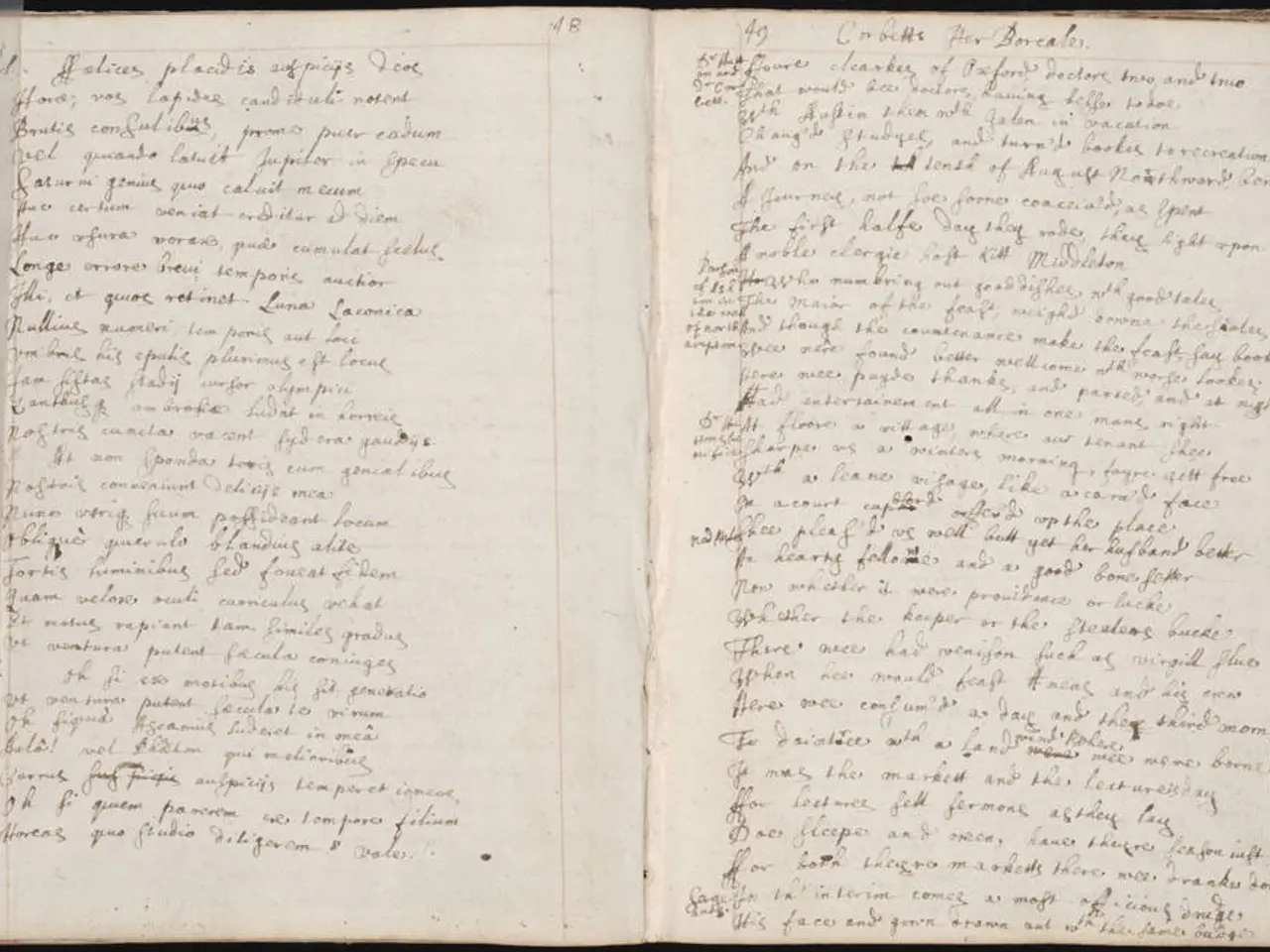Exploring Strategies for Showcasing Understanding of Multiple Viewpoints in Theory of Knowledge (TOK)
In the realm of academic pursuits, crafting a compelling Theory of Knowledge (TOK) essay requires a unique blend of analytical balance, multiple perspectives, and strategic presentation of claims and counterclaims. Here's a step-by-step guide on how to create an effective TOK essay that incorporates these elements.
First and foremost, it's crucial to understand the knowledge question (KQ) deeply. This involves carefully unpacking the question, identifying key terms, and brainstorming ideas around it. Using tools such as mind maps or lists can help organise your thoughts clearly.
Next, incorporate multiple perspectives by exploring how different Areas of Knowledge (AOKs) or cultural viewpoints interpret the KQ. Present both supporting and opposing viewpoints to demonstrate analytical balance. For instance, when discussing knowledge usefulness, consider perspectives from natural sciences and human sciences, or history and ethics.
The use of diverse ways of knowing (WOKs) is another key aspect. Reason, emotion, language, and perception can be used to examine how knowledge is acquired and understood from different angles. Explicitly connecting these WOKs to your claims or counterclaims demonstrates nuanced thinking.
Framing claims and counterclaims strategically is also essential. Start with a clear claim grounded in evidence or real examples. Follow with reasonable counterclaims that acknowledge limitations or alternative interpretations. Use examples from various disciplines or real-world contexts to support each side, and engage critically, showing awareness of the complexity of knowledge rather than oversimplifying.
Integrating examples effectively is also vital. Link them explicitly to your KQ, illustrating how they embody the claim or counterclaim and relate to WOKs or AOKs.
Maintaining a logical flow is crucial to ensure the essay moves through exploration and evaluation systematically. This ensures your argument builds progressively towards a well-considered conclusion.
Lastly, reflect on implications and limitations to show critical self-awareness about the strengths and weaknesses of your argument and the areas of knowledge involved.
In summary, a strong TOK essay hinges on analytical balance, multiple perspectives, explicit use of WOKs, and well-supported claims and counterclaims that together illuminate the complexity of knowledge.
Tools like RevisionDojo can assist in this process. Their Jojo AI provides structure suggestions and thinking prompts for comparing contrasting perspectives, while their tutorial guides show how to integrate diverse viewpoints effectively in TOK assessments. They offer TOK outline templates, example banks, and comprehensive critical-thinking guides to help structure balanced arguments and compare contrasting perspectives.
Remember, perspectives in TOK analysis should ideally come from different WOKs/AOKs for balanced analysis. Deliberately presenting a viewpoint you may disagree with is a way to avoid bias.
By following these steps, you'll be well on your way to crafting a TOK essay that truly shines, showcasing your analytical prowess and understanding of the complexity of knowledge.
Engaging in self-development through education is essential for creating a compelling Theory of Knowledge (TOK) essay. Delving deep into the knowledge question (KQ) and employing diverse ways of knowing (WOKs) like reason, emotion, language, and perception can help uncover a nuanced understanding of different Areas of Knowledge (AOKs) and cultural viewpoints, thereby facilitating personal growth and learning.




